2008/9 Van Winkle Family Reserve Rye
$4,999.00 Original price was: $4,999.00.$2,749.45Current price is: $2,749.45.
A true collectors Rye with an intricate and storied past! The Van Winkle Family Reserve Rye is age stated as 13 years old, but is in fact 19 years old. It’s the Pappy of ryes, or so the story goes. In fact, Van Winkle Family Reserve Rye was not actually distilled at Stitzel-Weller. The distillery from which the 2008 rye comes is the Medley distillery in Owensboro. However in 2004, when the rye was moved to stainless steel tanks, it was blended with rye distilled at Cream of Kentucky (Old Bernheim). The 2008 is particularly sought after as it is rumored that in 2012, 4 years later, Buffalo Trace began added their own rye to the blend, making the 2008 an example of a pure Medley/Bernheim Rye. Lastly, The move to stainless steel tanks was done to arrest the aging process which actually makes the 2008 vintage a 19 year rye even thought it is labeled as a 13 year.
—
A true collectors Rye with an intricate and storied past! The Van Winkle Family Reserve Rye is age stated as 13 years old, but is in fact 19 years old. It’s the Pappy of ryes, or so the story goes. In fact, Van Winkle Family Reserve Rye was not actually distilled at Stitzel-Weller. The distillery from which the 2008 rye comes is the Medley distillery in Owensboro. However in 2004, when the rye was moved to stainless steel tanks, it was blended with rye distilled at Cream of Kentucky (Old Bernheim). The 2008 is particularly sought after as it is rumored that in 2012, 4 years later, Buffalo Trace began added their own rye to the blend, making the 2008 an example of a pure Medley/Bernheim Rye. Lastly, The move to stainless steel tanks was done to arrest the aging process which actually makes the 2008 vintage a 19 year rye even thought it is labeled as a 13 year.
In 1893, when he was 18 years old, Julian “Pappy” Van Winkle Sr. began working as a salesman for the liquor wholesaler, W.L. Weller & Sons. Fifteen years later, he and another Weller salesman bought the firm. In 1910 they acquired the A. Ph. Stitzel Distillery in Louisville, Kentucky, which had started as a sour mash whiskey distillery in 1872.
The Stitzel Distillery supplied much of the whiskey sold by the Weller wholesale firm. The consolidation coincided with prohibition, during which time the Stitzel-Weller firm was licensed by the government to produce whiskey for medicinal purposes. One of their labels that was introduced on the market just before prohibition was Old Rip Van Winkle. After prohibition, the brand was not reintroduced until after 1972 when the Stitzel-Weller distillery and its current brand names (including W. L. Weller, Old Fitzgerald, Rebel Yell, and Cabin Still) were sold to other companies.The only brand name the Van Winkle family had kept the rights to was the pre-prohibition brand Old Rip Van Winkle.
The Stitzel-Weller Distillery was opened on the day of the Kentucky Derby in 1935, just outside Louisville in Shively, Kentucky. At the time of his death in 1965 at the age of 89, Pappy Van Winkle was the oldest active distiller in the nation. A photo of him lighting a cigar graces the bottle’s label.
Sometime after the Stitzel-Weller distillery was sold in 1972, Julian Van Winkle, Jr. resurrected the pre-prohibition Old Rip Van Winkle brand and initially used old whiskey stocks from the distillery for its bottlings. Julian Jr. died in 1981 and Julian Van Winkle, III (Pappy’s grandson) took over the Old Rip Van Winkle Distillery company.
After the initial sale in 1972, the Stitzel-Weller distillery was eventually closed completely in 1991.
Since 2002, the Van Winkle brands have been distilled and bottled by the Sazerac Company at the Buffalo Trace Distillery as a joint venture with the Old Rip Van Winkle Distillery company.
In 2013, Julian Preston Van Winkle III, said the 2013 bottlings of the 23-year brand expression “may be the last of its kind”, since at that point there was very little left of the aging stock from the Stitzel-Weller distillery (although he said the brand would not be discontinued). The makers say that they do not want to boost production, as there is considerable long-term risk, and they do not want to be left holding copious quantities of unsaleable bourbon should tastes, fashions or circumstances change.
Be the first to review “2008/9 Van Winkle Family Reserve Rye” Cancel reply
Related products
Vintage
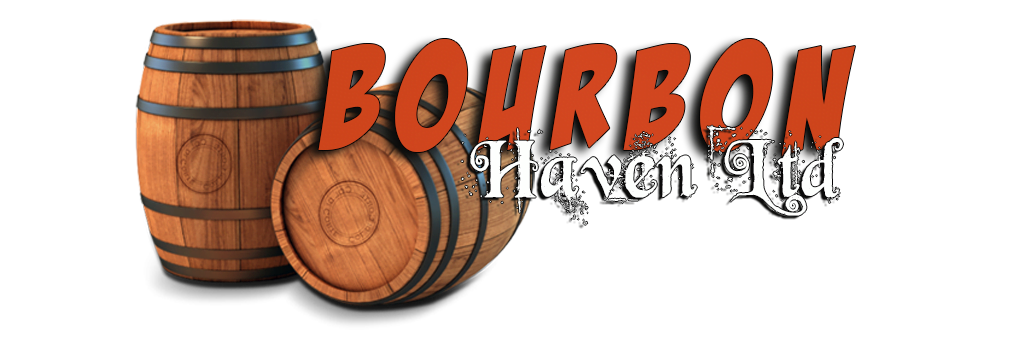


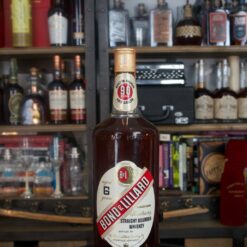
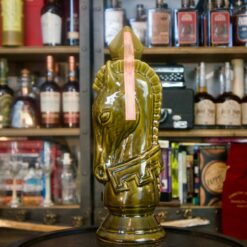

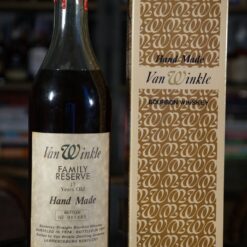

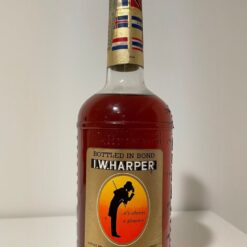
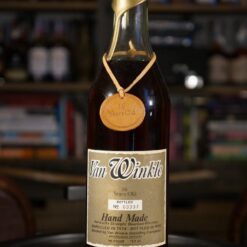
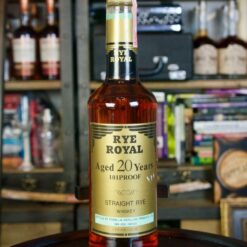
Reviews
There are no reviews yet.